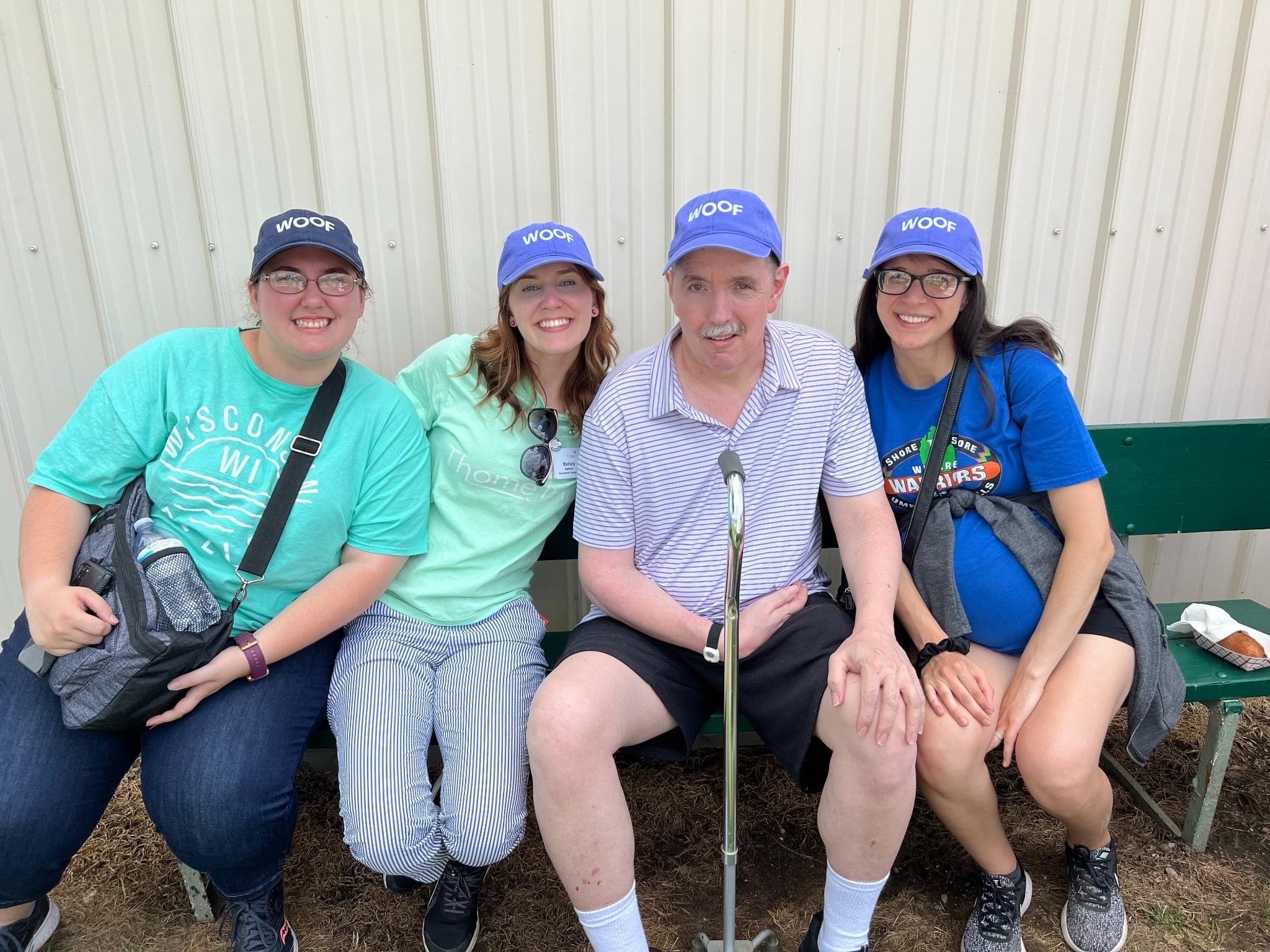
Spotlight on Recreational Therapy Month: Having Fun While Improving Physical and Mental Health for Older Adults
February is Recreational Therapy Month, and we are delighted to feature our Recreational Therapy team at Thome PACE (Program of All-inclusive Care for the Elderly) in Jackson, Michigan. Recreational therapy is an important tool that helps older adults reconnect with activities they once enjoyed—or discover new ones—all while improving their physical and mental health, as well as their cognitive function.
“The number of benefits to recreational therapy are endless,” says Thome PACE Recreational Therapist Supervisor Maegan Zurawski. “We do a variety of programs with our participants that focus on the five domains of wellness: social, physical, cognitive, emotional, and spiritual. The cool thing about recreational therapy is that our participants do not even realize they are doing therapy. For example, a game of UNO engages our participants and gets them having fun, laughing, and smiling. But we’re also working on hand-eye coordination, sequencing, activity tolerance, and matching—all parts of their cognition. They are also working on social skills and interacting with others.”
Maegan and fellow recreational therapist at Thome PACE, Amanda Vreeland, say what they enjoy most in their work is “Having fun and engaging with our participants. Seeing our participants laugh and smile is one of the best things.”
Maegan explains that many PACE participants felt isolated or lonely, or were unable to leave their home, prior to enrollment in the PACE program. “We provide our participants with outings to restaurants, museums, the zoo, the county fair, and more to help them get out and be active and engaged.”
Pre-COVID, Thome PACE served at least 80 participants per day at its Day Center in Jackson. “Once COVID hit, we had to get creative and began home visits,” says Maegan. “Some participants were very isolated, so we would sit and socialize with them, or bring card and word games to play with them. Even though our Day Center is now partially open, we still provide home visits to those who are not completely comfortable being in a bigger group setting. We can provide recreational therapy opportunities in the comfort of their own home.”
Thome PACE participants enjoy outings, card games, arts and crafts, as well as more active games such as bean bag toss and horseshoes, says Maegan. “We seek input from our participants and try adding new activities into the mix.”
For those participants living with dementia, recreational therapy also helps maintain a good quality of life. Says Maegan, “Especially for our participants with advanced dementia, we engage one on one with them, using music and sensory/tactile items such as stress balls, pop its busy blankets, and sensory boards to engage them. A simple smile from listening to a song they might remember is a huge win.”
Maegan and Amanda are extremely passionate about recreational therapy and share that a big part of their work is educating others about what recreational therapy is and why it’s important. “I love providing education whenever I can to help people understand it is so much more than ‘playing games,’” says Maegan. “Our participants want to take part in therapy when they are having fun. Little do they know they are also working on their goals to get stronger, walk better, have better balance, etc. An active game like tossing a bean bag can help them with these goals while also engaging with others, socializing, and hopefully feeling less isolated and lonely. Recreational therapy is very important—we focus on quality of life.”
Brio Living Services is one of Michigan’s leading providers of PACE services with five sites statewide, serving approximately 1,200 older adults annually across 15 Michigan counties. Thome PACE in Jackson serves low-income, nursing home-eligible older adults, 55 and up, across Jackson, Lenawee, and Hillsdale counties, allowing them to live safely and independently in their own homes and communities, thanks to PACE services. PACE’s interdisciplinary team of professionals—including recreational therapists—provides participants with a “one-stop” shop model for all their healthcare needs, including comprehensive medical, occupational and physical therapy, pharmacy needs, nutrition and meals, health education, social and recreational activities, and door-to-door transportation. Most participants are dually eligible for Medicare and Medicaid and pay no additional fees for PACE services.
For more information about Brio Living Services’ PACE locations across the state, go to PACE’s website or visit MyBrio.org